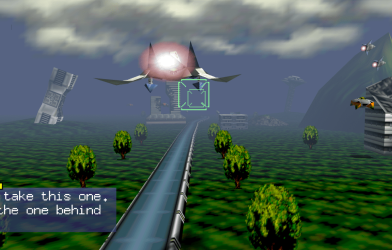The runaway success of Luca Galante’s Vampire Survivors has inspired many imitators: new games like HoloCure – Save the Fans! and Halls of Torment, as well as spinoffs of existing popular titles like Deep Rock Galactic: Survivor and League of Legends’ temporary Swarm game mode.
A new contender has burst onto the scene, and it’s quite fun — if you’re willing to give it a few hours. Karate Survivor, released by developer and publisher Alawar on Oct. 30 for PC, is a Vampire Survivors-like that takes inspiration from ’80s action movies, and specifically the Hong Kong action movies of that era. The game nails the brief aesthetically — the models for the player characters, enemies, and environments (Supermarket, Bar, Rooftop, Construction Site, and Subway) look straight out of the movies the game is hoping to evoke — you’ve got lots of denim, vests, and a general ’80s vibe to the animation style. Plus, the movement of the action is smooth and fluid, which is a must for any game playing off the legacy of ’80s Hong Kong action cinema.
Like Vampire Survivors, in Karate Survivor, you control a character who’s trying to, well, survive a swarm of advancing enemies. You start with one martial arts move that automatically deploys on a cooldown, and as you defeat enemies with it, you gain experience. When you amass enough experience, you level up, unlocking either another martial arts move as an attack (you can have up to six active) or stat bonuses (like increases to dodge, block, strike damage, environmental object damage, etc.). Beating up your enemies also earns you a currency, Teeth, which can be used to upgrade your character with buffs you can save across playthroughs.
Your unlocked martial arts moves aren’t the only weapon at your disposal. One of the most fun parts of the game is picking up random objects to use as weapons — bottles, bricks, baseball bats, crowbars. It feels like scrambling to use anything around you to make it through the fight in a way that is very appropriate for a game inspired by Jackie Chan movies.
I’m having a great time with Karate Survivor about eight hours in, but it took a while to start enjoying it. After about an hour of play, I just about gave up on the game because I found the few actions available to me boring and far too limited. But I gave it another go (because of how much I love the aesthetic and this era of action movies), and I was surprised to find how many crucial mechanics were progress-gated.
Now, several hours in, I can roll over obstacles, kick people on the other side of them, or kick objects on the ground at enemies. But it took me about six hours to unlock one of the game’s core functions. Each martial arts move has a color that, when matched up with other moves of the same color, synergizes for additional damage. That element is unlocked pretty early on. But each move also has a number attached to it, and if you sequence the moves in the right order (e.g., red 6, then red 7, red 8, 9, 10, and 11), you get a powerful buff to each move in the sequence.
That whole system only gets unlocked after beating the first level’s boss. It wasn’t clear to me how crucial beating the first level’s boss was to unlocking one of the game’s core mechanics, and I unlocked each of the next two levels (and played them a few times) before beating the first boss. If I had focused all my energy on beating the first boss, I certainly would have unlocked that mechanic sooner, but I was still getting used to playing the game with the limited tools available to me, and trying the different levels I had unlocked.
I understand the motivation for locking some elements behind game progress — it feels good to unlock new abilities and functions. But these feel like core mechanics integral to a good experience with Karate Survivor, and gating them makes the game feel pretty lifeless at first. Thankfully, once you get past that part, it’s a worthwhile addition to the burgeoning survivor genre.
Karate Survivor was released on Oct. 30 on Windows PC. The game was reviewed on PC using a pre-release download code provided by Alawar. Vox Media has affiliate partnerships. These do not influence editorial content, though Vox Media may earn commissions for products purchased via affiliate links. You can find additional information about Polygon’s ethics policy here.










Comments are closed